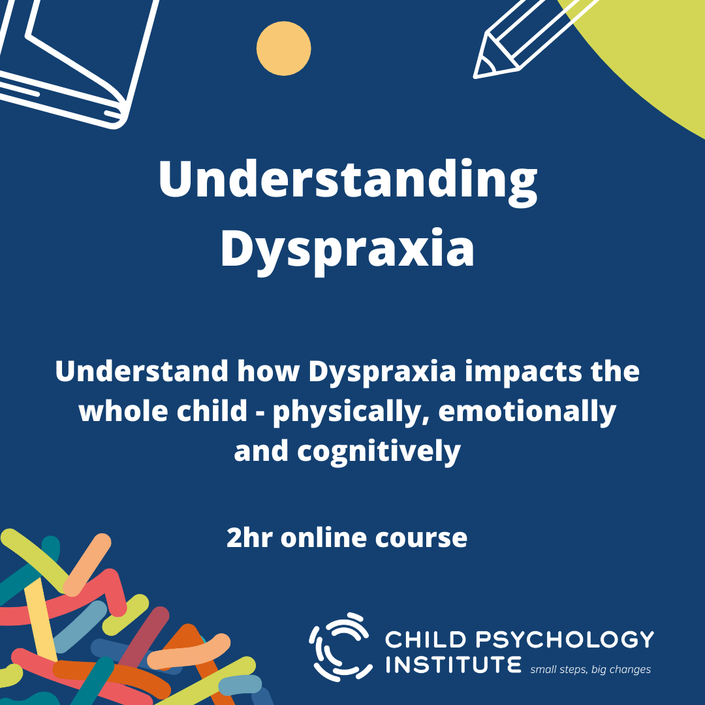
Understanding Dyspraxia
Understand how Dyspraxia impacts the whole child - physically, emotionally and cognitively
"To be yourself in a world that is constantly trying to make you something else is the greatest accomplishment."
Ralph Waldo Emerson
This course is recommended for parents and those working with children in education, health and social care professions (Primary School Teachers, Secondary School Teachers, Early Years Practitioners, Social Workers, Youth Workers, GPs, Nurses, SNAs/CAs, Counsellors, NQTs, Home School Community Liaison Officers, Principals, Boards of Management, Administration Staff).
Research continues to highlight how parents report feeling under-supported when it comes to the needs of their children with Dyspraxia. At the Child Psychology Institute, we want to bridge this gap and have developed this course in order to educate and empower parents who want to provide the very best in terms of care and opportunities for their child.
Although Dyspraxia - also known as Developmental Coordination Disorder - is extremely common in school-aged children (5-15%), research has shown that the majority of professionals working with children have little to no knowledge about this condition. Because identifying this condition early on is essential in order to avail of timely supports, it is essential that every professional working with children has a full understanding of how Dyspraxia presents. One of the reasons Dyspraxia is often not on the radar of professionals is because it is highly co-morbid with other conditions. In other words, children with Dyspraxia very often have other sensory, emotional and social issues. Students who take this short two-hour course will have a comprehensive knowledge of Dyspraxia upon completion and will understand the serious impact this disorder has on the whole child and their lived experience in the world.
This course covers the following topics:
- Diagnostic criteria
- How Dyspraxia effects a child and what it typically looks like
- Overview of comorbidities with other neurodiverse conditions (eg. ADHD, Dyslexia)
- How Dyspraxia issues change across the early years, in school-aged children and in teenagehood
- How Dyspraxia impacts executive function (eg. impulse control and organisation)
- The psychological implications of Dyspraxia for the child
"Every child deserves a champion - an adult who will never give up on them, who understands the power of connection, and insists that they will become the best that they can possibly be."
Rita Pierson
Your Instructor

Dr Lorraine Lynch is the Clinical Director of the Child Psychology Institute (CPI). She holds a Professional Doctorate in Health Psychology from London Metropolitan University (LMU) and is accredited by the HCPC and BPS. Her research thesis was based on the lived experience of children with Dyspraxia/Developmental Coordination Disorder (DCD) from the perspective of their parents. During her doctorate training, she completed placements in the private sector working on breastfeeding advocacy and support, and also within the NHS (Kidderminster Hospital, Birmingham) working on the promotion of digital health solutions. Dr Lorraine has won numerous awards within the social innovation and enterprise space, receiving a Social Entrepreneurs Ireland award in 2014, Enterprise Ireland's New Frontiers Award in 2021 and Network Ireland 'Power Within Champion' Award in 2022. Dr Lorraine is also the author of two books designed to promote children’s wellness - #100happydays4kids and Closing Saor’s Day.
Her most important role is a mother to three smallies, who serve as a constant reminder of how much potential exists within each child.
“Even the tallest trees always begin as a seed.” A. J. Darkholme
